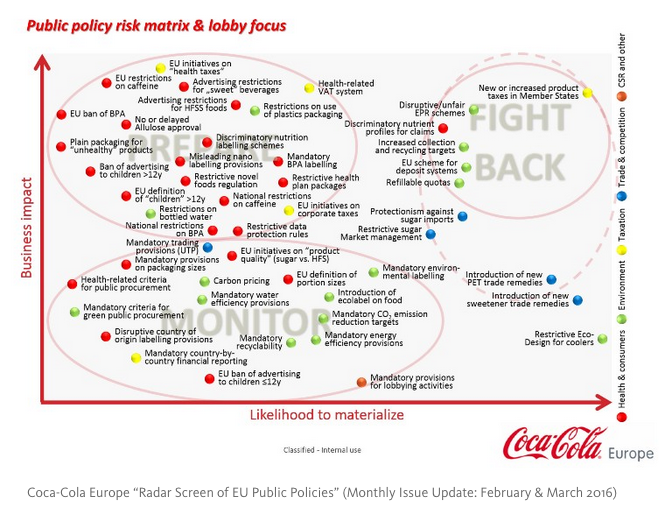Leaked Coca-Cola emails reveal an opportunity for advocates
by: Fernando Quintero
posted on Tuesday, November 01, 2016
With document leaks coming at us left and right, one particular leak that has healthy food and drink advocates buzzing is the recent release of hacked Coca-Cola emails that show the company’s apparent growing concern about current soda tax proposals like the ones in San Francisco and Oakland.
The leaked internal emails released by the anonymous hacker site D.C. Leaks show how Coca-Cola is fighting soda taxes in the U.S. and abroad.
In the California cities of San Francisco, Oakland and Albany as well as Boulder, Colorado, Big Soda has spent big money to defeat soda tax proposals. Since 2014, when Berkeley became the first city in the country to approve a soda tax measure — and the Navajo Nation Council approved a 2 percent sales tax on sweetened beverages and junk food on top of a 5 percent sales tax for foods of minimal to no nutritional value — the soda industry has more than doubled its spending on lobbying and campaigning against soda tax proposals, from $14 million to $37.7 million, according to Vox.com.
The leaked emails show just how aggressively Big Soda continues to fight legislation in the U.S. and abroad. In addition to the California and Colorado measures, Coca-Cola targeted two soda tax proposals in Connecticut and in West Virginia, according to a recent MarketWatch story. The report also excerpted internal emails that characterized a soda-tax proposal in France as “worrying.”
Most noteworthy was a classified leaked document from Coca-Cola Europe that included a “public policy risk matrix & lobby focus” that placed marketing and advertising restrictions high on “business impact” but low on “likelihood to materialize.”
And, according to a follow-up MarketWatch story, “the leaked emails show how Coca-Cola has actively and successfully lobbied against legislation in multiple countries that would have prevented it from advertising to kids.”
Sounds like we advocates have our marching orders. It’s our job, along with our partners and allies, to make advertising restrictions to children waaaay more likely.




